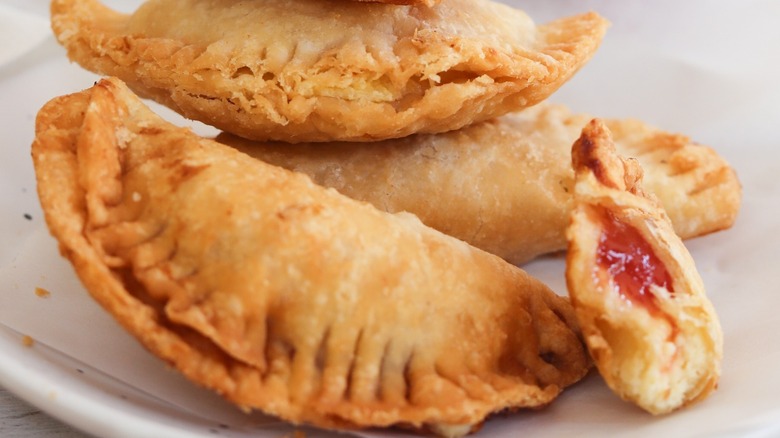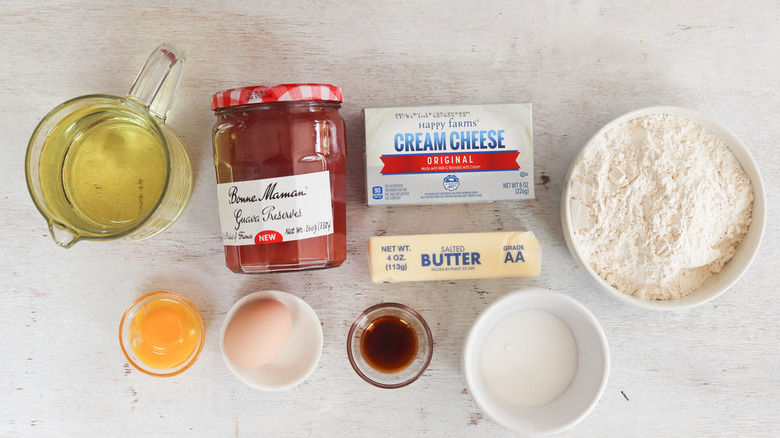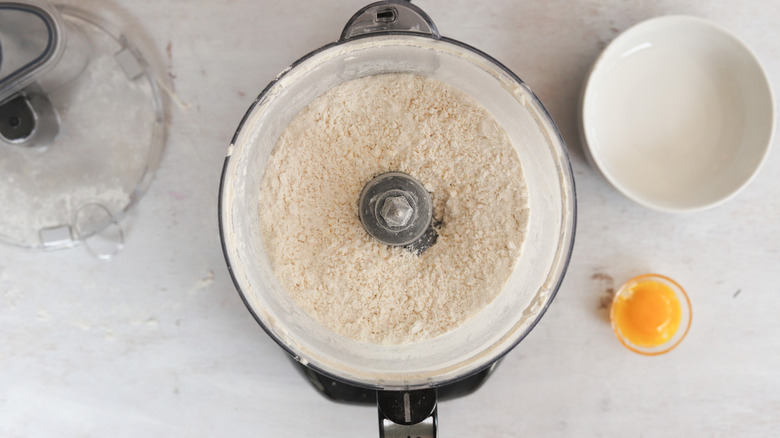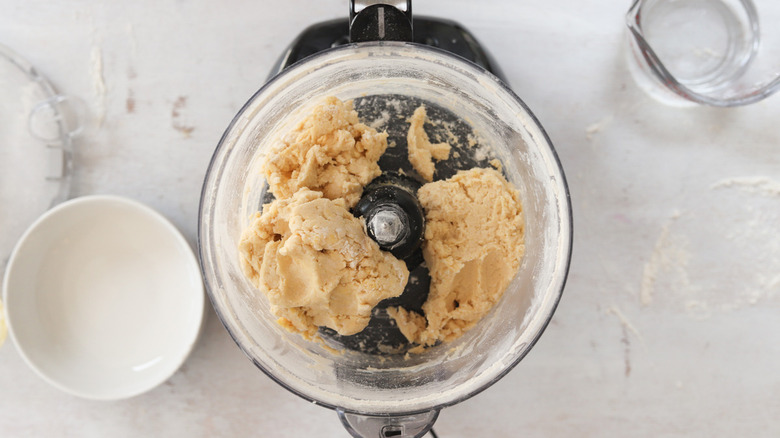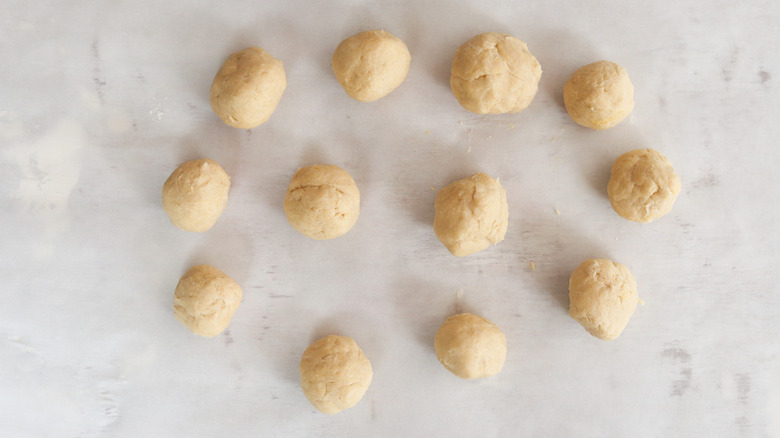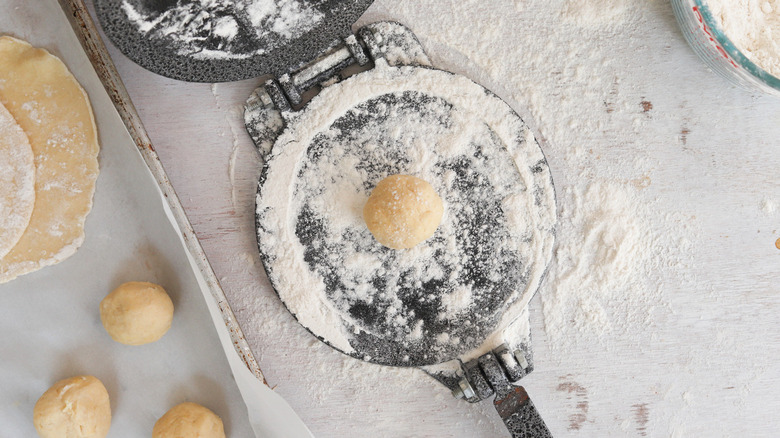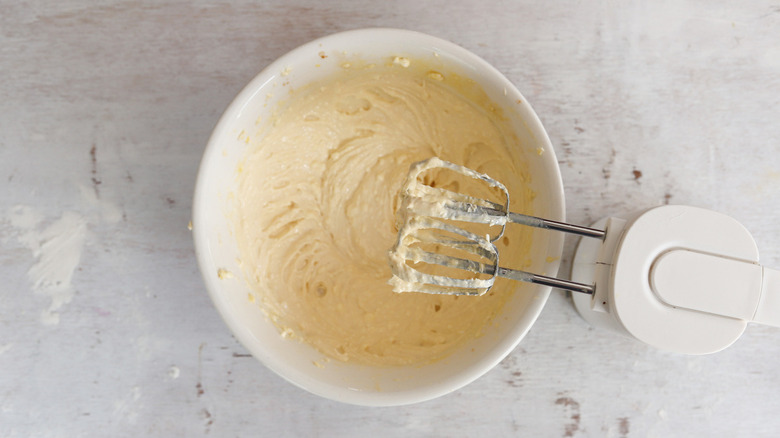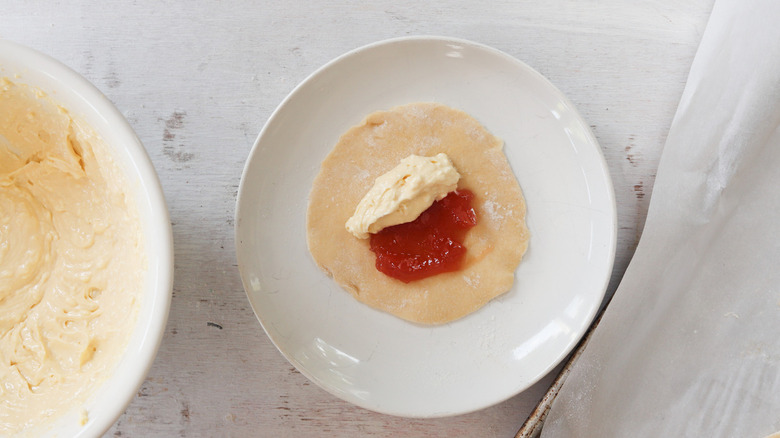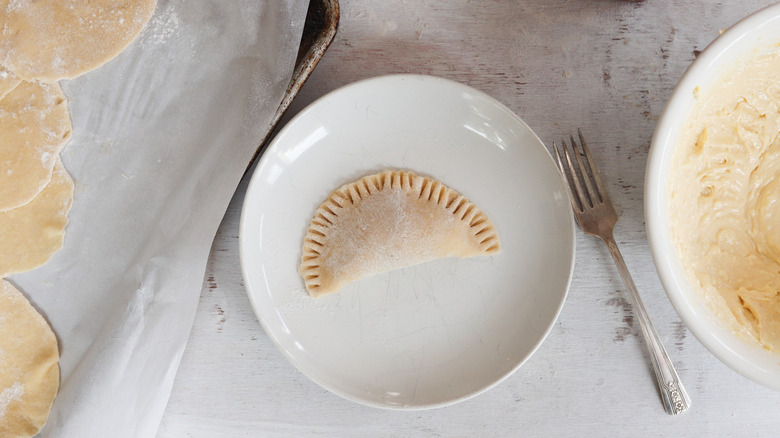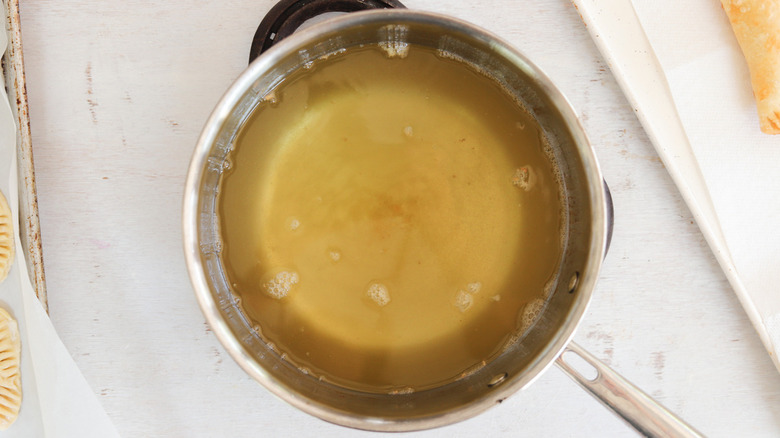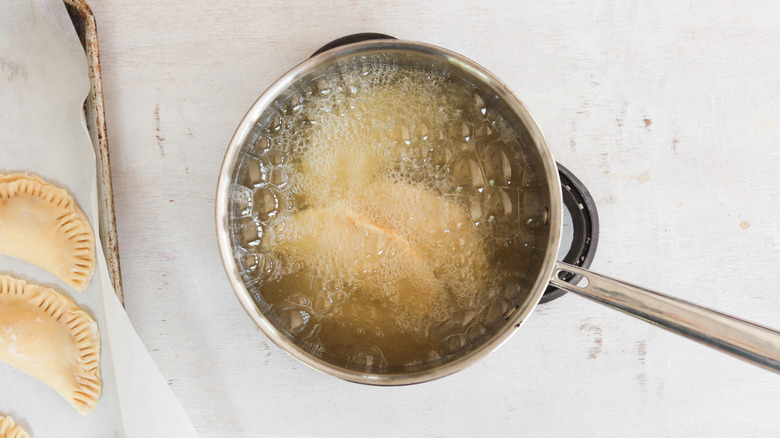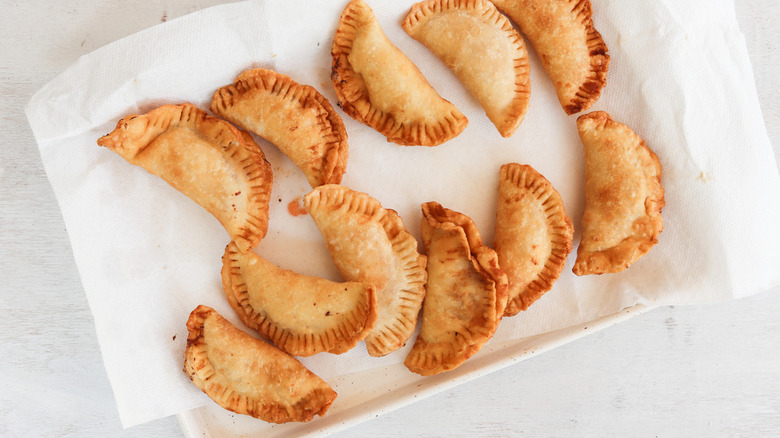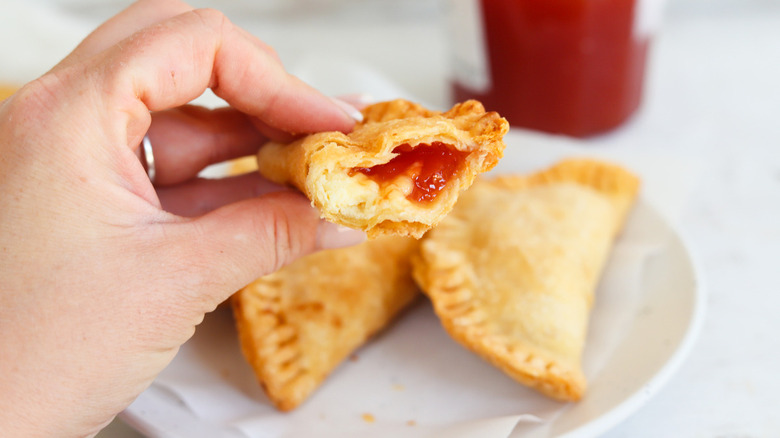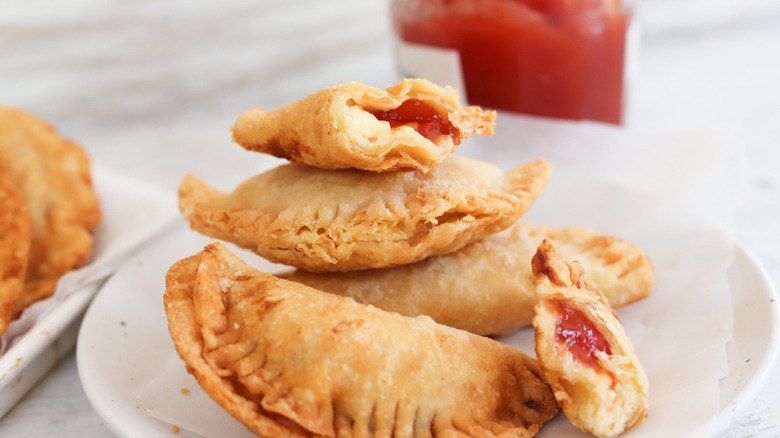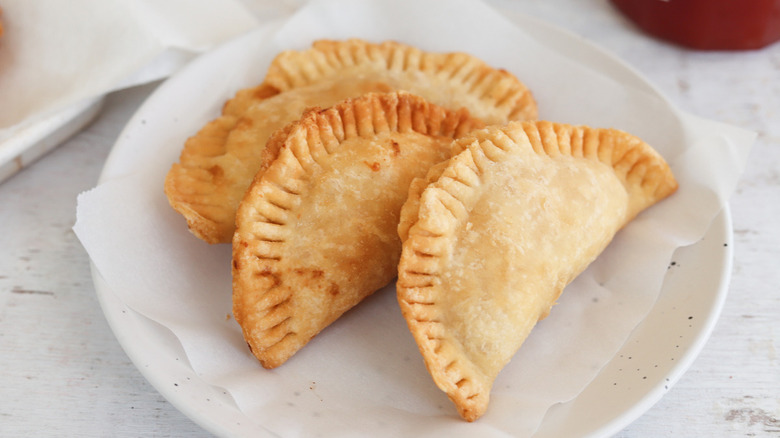Guava And Cream Cheese Empanadas Recipe
Empanadas are a dish we often associate with either Venezuela or Argentina, but throughout their history, these pastries have migrated to many other Latin American countries, as well. Recipe developer Leah Maroney has often eaten them in Puerto Rico when she visits friends on the island, where empanadas may also go by the name of pastelillos.
While we may think of empanadas as being a savory dish, sweet empanadas are also a thing, and these guava and cream cheese empanadas could make the perfect dessert for a picnic. Maroney, however, says, "I would call them a breakfast or coffee snack, and maybe an afternoon snack," as they are light and flavorful without being overwhelmingly sugary. Their filling, she says, reminds her of the type of tapas with manchego cheese and quince paste, although she notes that the empanadas are quite a bit sweeter, so they may be something you'd pair with a cup of coffee rather than a glass of sherry.
Collect the ingredients for the guava and cream cheese empanadas
To make the empanada dough, you'll need flour, salted butter, sugar, and egg yolk, while you'll also need a whole egg, cream cheese, vanilla, and guava paste or jam for the filling. As these empanadas are deep-fried, the final ingredient you'll need is vegetable oil.
Step 1: Combine the butter and flour
Add the flour and butter to the bowl of a food processor and pulse until large crumbs form.
Step 2: Add the rest of the dough ingredients
Add in the sugar, egg yolk, and about ¼ cup of warm water and pulse until combined.
Step 3: Shape and chill the dough
Divide the dough into 12 equal-sized balls. Cover the balls and chill for 1 hour or up to 24 hours.
Step 4: Roll out the dough
Press or roll each ball into a thin round using a tortilla press or a rolling pin.
Step 5: Make the cream cheese filling
Add the cream cheese, sugar, egg, and vanilla extract into a bowl and beat with a hand mixer until smooth.
Step 6: Fill the empanadas
Add a tablespoon of cream cheese mixture and a tablespoon of guava jam to the center of each round.
Step 7: Shape the empanadas
Fold the dough over and crimp with a fork.
Step 8: Heat up the oil
Heat the oil to 325 F.
Step 9: Fry the empanadas
Working in batches, fry each empanada for 3 minutes or until golden brown.
Step 10: Drain the empanadas
Drain on a paper towel-lined tray.
Step 11: Eat the empanadas
Serve the guava empanadas.mpensate for this difference (And you can even add a bit more if you wish).
Guava and Cream Cheese Empanadas Recipe
Empanadas don't always have to be savory, and this easy recipe uses guava jam paste and cream cheese for a delicious, fruity fried empanadas.
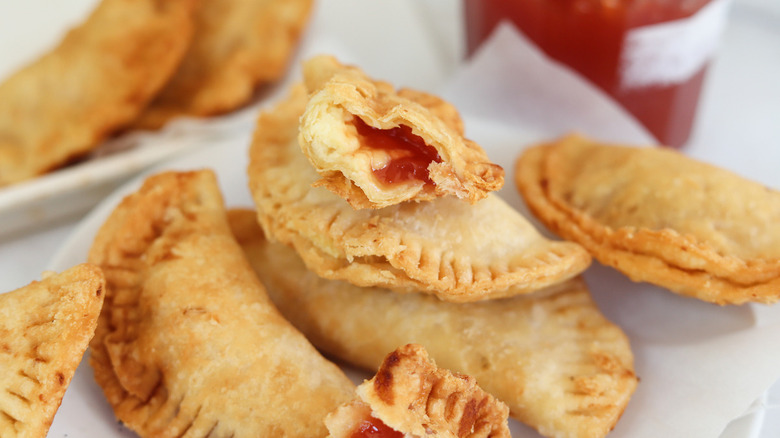
Ingredients
- For the dough
- 2 cups all-purpose flour
- 8 tablespoons (1 stick) salted butter
- 1 tablespoon sugar
- 1 egg yolk
- For the filling
- 8 ounces cream cheese
- ½ cup granulated sugar
- 1 egg
- 1 teaspoon vanilla extract
- 1 cup guava paste or jam
- For frying
- 2 cups vegetable oil
Directions
- Add the flour and butter to the bowl of a food processor and pulse until large crumbs form.
- Add in the sugar, egg yolk, and about ¼ cup of warm water and pulse until combined.
- Divide the dough into 12 equal-sized balls. Cover the balls and chill for 1 hour or up to 24 hours.
- Press or roll each ball into a thin round using a tortilla press or a rolling pin.
- Add the cream cheese, sugar, egg, and vanilla extract into a bowl and beat with a hand mixer until smooth.
- Add a tablespoon of cream cheese mixture and a tablespoon of guava jam to the center of each round.
- Fold the dough over and crimp with a fork.
- Heat the oil to 325 F.
- Working in batches, fry each empanada for 3 minutes or until golden brown.
- Drain on a paper towel-lined tray.
- Serve the guava empanadas.
Nutrition
| Calories per Serving | 660 |
| Total Fat | 52.4 g |
| Saturated Fat | 11.4 g |
| Trans Fat | 0.8 g |
| Cholesterol | 64.9 mg |
| Total Carbohydrates | 44.8 g |
| Dietary Fiber | 0.9 g |
| Total Sugars | 23.1 g |
| Sodium | 134.9 mg |
| Protein | 4.1 g |
What are the origins of guava empanadas?
Empanadas, like many other Latin American dishes, have their roots in Spain and Portugal, and the first known recipe for these crescent-shaped pastries comes from a 16th-century cookbook written in Catalan. At that time it seems to have been one large pastry, but over the years, the dish evolved into smaller, more portable pieces. As Spanish settlers established themselves in South and Central America, they brought along their favorite recipes, such as the one for empanadas.
As for the guava and cheese filling, this seems to have originated in Cuba. Food history may get a bit fuzzy over the years, but one story has it that the flavor combination was first created by enslaved sugar mill workers. The date may actually be a bit later, however, since American-made cream cheese became popular in Cuba during the early 20th century thanks to its proximity to the U.S. while slavery was abolished there in 1886. Cuba's guava pastelitos, as these pastries are known, may differ from the Puerto Rican ones recalled by Maroney in that they often take the form of small squares of puff pastry rather than the half-moon shape typical of empanadas.
What are some tips for making guava empanadas?
While Maroney enjoys making her own empanada dough, she says that frozen discs of dough are readily available and make the process easier. (Store-bought dough also makes breakfast empanadas a cinch.) If you do start from scratch, though, Maroney says that you need to be sure that the dough is chilled when you start working it, since this will keep the pastry flaky. If the dough doesn't want to stay sealed once you fill it and crimp it, use a little water to help seal the edges. At this point, you can refrigerate or freeze the empanadas, if you wish. Once you begin frying them, though, be sure not to cook too many at once, as working in batches will help ensure that the oil temperature stays even.
As for the filling, Maroney uses guava jam but explains that the same amount of guava paste can be used instead if that's easier to come by. "It's usually less sweet, but that's fine," she says, explaining that the sugar in the cream cheese filling should compensate for this difference (and you can even add a bit more, if you wish).
